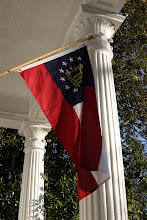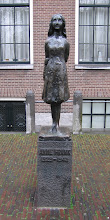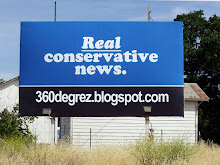Bank of America customers will soon be unable to spend more than they have in the accounts linked to their debit cards. It's a step that may become a common move ahead of new regulations limiting overdraft fees.
Rules set by the Federal Reserve that will ban banks from charging such fees, without first getting permission from the customer, are set to take effect July 1.
But Bank of America is going a step further than the regulations require. It will simply no longer allow debit card purchases to go through if there isn't enough money in the account.
For ATM transactions, customers who try to withdraw more than their balance will have to agree to pay a $35 overdraft fee before they can get the money.
Since the bank doesn't have the ability to notify the customer when they're at the register and give them the chance to agree to a fee, it will simply reject such transactions.
Consumers have demonstrated a willingness to pay overdrafts for covering the mortgage and the car payment, said Greg McBride, who follows the banking industry for Bankrate.com. "But not if it's things like covering a latte and a scone."
The bank's new policy will kick in on June 19 for new accounts, and in early August for existing accounts. It will replace the bank's current terms, which allow overdrafts to go through but only charge a fee if the deficit is greater than $10.
Bank of America likely won't be the last to make the change. That's because while the new rules will save consumers from surprising dings on their accounts, they will also cut deeply into the more than $1.77 billion annual revenue overdraft fees generate for the banking industry.
The Federal Deposit Insurance Corp. estimates about 41 percent of that total is from point-of-sale debit transactions. About 8 percent was from ATM transactions. The rest were from bad checks and online bill payments, which are not addressed in the regulation.
What's more, 93 percent of overdraft fees are generated by just 14 percent of customers.
Because most of the fees were paid by what Robert Meara, a banking analyst with the consultant Celent, called "serial overdrafters," the rules may not save the average consumer much money. In fact, because banks will look to make up that lost revenue, it may actually cost most individuals more.
Or, he suggested, consumers might start seeing deals advertised where free checking kicks in after a certain number of transactions, or if a customer has several accounts linked together.
Poll: Obama More Popular Than Congress - Which Isn't Saying Much
Americans have come to detest Congress ever more deeply as it nears the end of a nasty fight over health care. But more than half still back President Obama, a bright spot for a Democratic Party counting on its leader to help stave off expected losses in elections this fall.
The latest Associated Press-GfK poll found that fewer people approve of Congress than at any point in Obama's presidency. Support has dropped significantly since January to a dismal 22 percent as the health care debate has roiled Capitol Hill. Neither Republicans nor Democrats are safe; half of all people say they want to fire their congressman.
Conversely, Obama's job-performance standing is holding fairly steady at 53 percent. And over the past two months, the Democrat has gained ground on national security issues, specifically the subsiding Iraq war and the escalating Afghanistan war, as he has spent most of his time - at least publicly - on domestic matters like the economy and health care. On those issues, he still has the support of about half the people.
The survey's results make clear that Obama remains far more popular than House and Senate members as he leads a Democratic Party facing a volatile election-year environment that, so far, seems to be trending in Republicans' favor. Judging by his standing at this point, Obama seems to be an asset for his rank and file.
But, given the fickleness of this electorate, the uncertainty of the health care debate and the stubbornly high unemployment rate, the president could just as quickly turn into a liability. His own clout will be on the line in the first midterm elections of his presidency. And the outcome is certain to shape the remainder of his first term, if not his likely re-election bid in 2012.
For now, it's unclear just how much Obama can do to prevent midterm election shellackings. Democrats lost recent statewide elections in Massachusetts, New Jersey and Virginia even though he campaigned for them. Presidents typically lose House and Senate seats in their first midterm elections. And the party in power usually bears the brunt of voters' ire when the country is in turmoil.
Thus, another of the poll's findings may not bode well for Obama and his Democrats: A clear majority of Americans - 56 percent - now say the country is headed in the wrong direction.
Democrat Benny Newman of Tulsa, Okla., laid the blame for the nation's ills on both Obama and the Democratic-controlled Congress.
In recent weeks, Obama has increasingly blamed the ways of Washington for a lack of progress on his agenda - even though he's in the White House and his party is leading Congress. The disparity between his popularity and Congress' shows his pitch may just be working.
Obama's overall standing hasn't really moved since January. Neither have his ratings on health care and the economy.
But his marks have jumped on Iraq and Afghanistan. More than half of people approve of how he's handling the wars, with 55 percent backing him on Iraq and 57 percent supporting him on Afghanistan. That's compared with 49 percent for each two months ago. The new poll was taken during weekend elections in Iraq, where a U.S. troop drawdown is under way, and in the midst of a buildup in Afghanistan, as the U.S. notches victories in rooting out suspected terrorists.
By comparison, Congress' approval rating has dropped 10 percentage points since January, perhaps an indication that people are blaming lawmakers more than the president for gridlock that has paralyzed Washington on a host of fronts.
It is quite unusual for voters to tear down their own member of Congress. People often dislike the institution of Congress but usually support their own representatives. But not this year. Half said they wanted to elect someone other than their current congressman; only 40 percent wanted to re-elect their lawmaker.
As poor as the ratings are for Congress in general, people seem slightly more unhappy with Republicans than Democrats - another bit of potentially good news for Obama's party.
Just 30 percent approve of how Republicans in Congress are doing their jobs compared with 36 percent for Democrats.
Republicans still trail Democrats on the question of who should win control of Congress come November; 44 percent say Democrats, 38 percent say Republicans.
Missing Atlanta Gas Light Exec Found Dead
The body of missing Atlanta Gas Light executive Douglas Schantz was found in the Mississippi River Tuesday, four days after surveillance video caught him stumbling up the narrow gangplank of a docked riverboat.
The Texas man was last seen leaving a French Quarter bar last week.Schantz, 54, disappeared early Friday morning after making a $25,000 scholarship donation to Tulane University, the school his daughter was attending.
The search for Schantz began on Bourbon Street where he had been drinking with colleagues until the early morning hours, and followed surveillance cameras as he headed toward the Mississippi River.
Atlanta Blocks Plan To Move Cemetery
An Atlanta group has voted down efforts to move a historical black cemetery.
The Mt. Olive Cemetery is located in Atlanta's pricey Buckhead neighborhood.
It contains the remains of at least 45 people and is believed to be one of the few remnants of an African-American community that lived in the area.
The Atlanta City Council's Community Development/Human Resource committee voted Tuesday against a proposal to move it.
A developer has proposed moving the remains to a perpetual care cemetery. The City Council is scheduled to vote on the idea at its meeting next Monday.
Tech Gets $50K Grant For Bike Lock Study
Georgia Tech is getting a $50,000 grant from the Ford Motor Co. Fund to test a new "smart lock" technology for bicycles in Emory University's bike-share program.
The student-developed system will install wireless and GPS technology on Emory's fleet of bicycles, allowing users to check them out via text messaging and administrators to track the bikes' use from a central server. The smart locks will connect wirelessly with the server, securing the bikes when they are not in use. Similar technology is already in use in Europe.
The money is from the Ford College Community Challenge, which gives grants to college programs that use school resources to address an unmet need on campus or in the local community.
Emory has had a bike-share program since 2007. The new smart-lock bikes will be available at Emory starting next summer and eventually will be expanded to Georgia Tech and to neighborhoods between the two Atlanta campuses.
Bank of America; The Federal Reserve; Bankrate.com; Celent; Associated Press-GfK; WSB; Georgia Tech.

































No comments:
Post a Comment